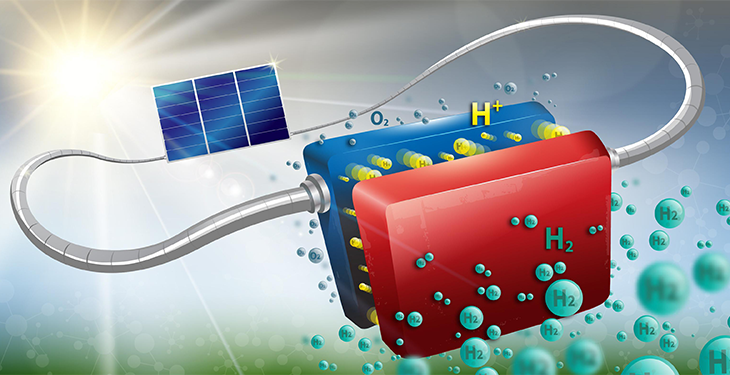A report by the Institution of Mechanical Engineers has proposed a new method of energy storage using hydrogen, which it says works more effectively than lithium-ion batteries. According to a report published by the Institution of Mechanical Engineers (IME) on May 9, gas grids have the potential to store excess renewable power in the form of hydrogen for longer than batteries can.
In 2017, rising renewable energy capacity in the UK caused wind power generation to jump by 31 percent while solar generation rose by 11 percent, according to recent analysis by Carbon Brief. As more electricity is produced by renewables, which only generate power under specific conditions such as when the sun is shining or wind is blowing, energy storage has become vital to the task of matching supply to demand, according to theneweconomy.com.
Lithium-ion batteries are the typical solution to questions of energy storage, but concerns have been raised about the limited availability of sustainable cobalt, a key component in the manufacture of batteries. But the IME has proposed a new solution entirely: hydrogen. “We need to move away from our wasteful culture to a more sustainable and circular economy,” said Jenifer Baxter, Head of Engineering at the IME and lead author of the report. “Power-to-gas and hydrogen technology could and should play a major role in building this future.”
In the report, Energy from Gas: Taking a Whole System Approach, the UK-based group called for the government to support power-to-gas technology, which allows excess electricity on the National Grid to be used to create hydrogen through electrolysis. This process produces ‘green’ gas that can be used anywhere from producing low emissions fuel for transport to reducing carbon dioxide emissions from heating systems, as well as balancing the electricity gird. “The UK has a strong track record of being at the cutting edge of new energy developments, and this could present the country with a chance to be a world leader in power-to-gas and hydrogen technology,” Baxter said.
Although the new method sounds promising, its benefits could still be a long way off. The IME has called on the government to support its plan by providing funding and changing the UK’s pipes to support the use of up to 20 percent hydrogen in the gas distribution network by 2023.
